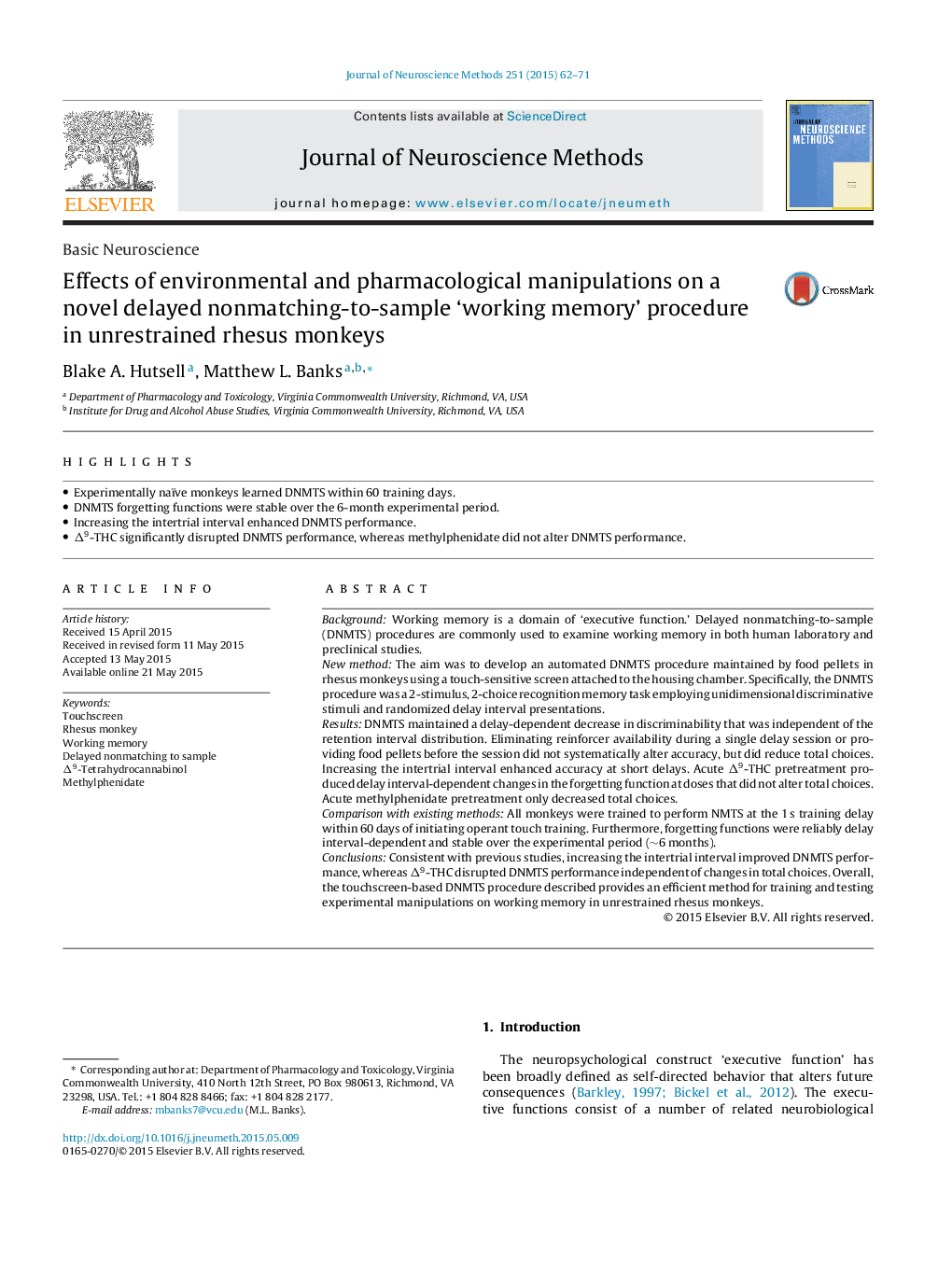| کد مقاله | کد نشریه | سال انتشار | مقاله انگلیسی | نسخه تمام متن |
|---|---|---|---|---|
| 6268166 | 1614618 | 2015 | 10 صفحه PDF | دانلود رایگان |
- Experimentally naïve monkeys learned DNMTS within 60 training days.
- DNMTS forgetting functions were stable over the 6-month experimental period.
- Increasing the intertrial interval enhanced DNMTS performance.
- Î9-THC significantly disrupted DNMTS performance, whereas methylphenidate did not alter DNMTS performance.
BackgroundWorking memory is a domain of 'executive function.' Delayed nonmatching-to-sample (DNMTS) procedures are commonly used to examine working memory in both human laboratory and preclinical studies.New methodThe aim was to develop an automated DNMTS procedure maintained by food pellets in rhesus monkeys using a touch-sensitive screen attached to the housing chamber. Specifically, the DNMTS procedure was a 2-stimulus, 2-choice recognition memory task employing unidimensional discriminative stimuli and randomized delay interval presentations.ResultsDNMTS maintained a delay-dependent decrease in discriminability that was independent of the retention interval distribution. Eliminating reinforcer availability during a single delay session or providing food pellets before the session did not systematically alter accuracy, but did reduce total choices. Increasing the intertrial interval enhanced accuracy at short delays. Acute Î9-THC pretreatment produced delay interval-dependent changes in the forgetting function at doses that did not alter total choices. Acute methylphenidate pretreatment only decreased total choices.Comparison with existing methodsAll monkeys were trained to perform NMTS at the 1Â s training delay within 60 days of initiating operant touch training. Furthermore, forgetting functions were reliably delay interval-dependent and stable over the experimental period (â¼6 months).ConclusionsConsistent with previous studies, increasing the intertrial interval improved DNMTS performance, whereas Î9-THC disrupted DNMTS performance independent of changes in total choices. Overall, the touchscreen-based DNMTS procedure described provides an efficient method for training and testing experimental manipulations on working memory in unrestrained rhesus monkeys.
Journal: Journal of Neuroscience Methods - Volume 251, 15 August 2015, Pages 62-71
